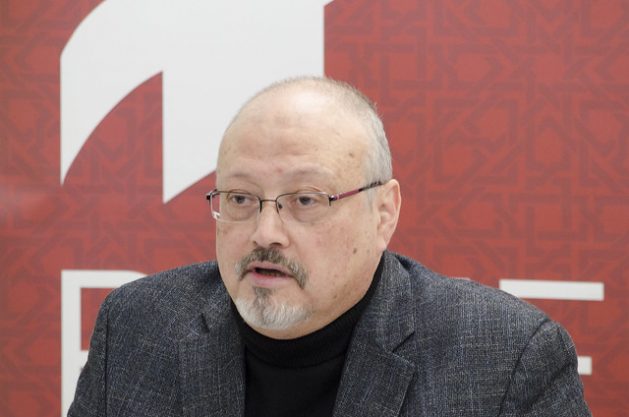
Aid, Civil Society, Development & Aid, Editors’ Choice, Featured, Gender, Gender Violence, Human Rights, Humanitarian Emergencies, IPS UN: Inside the Glasshouse, Labour, Middle East & North Africa, Migration & Refugees, Sustainable Development Goals

People in Yemen impacted by war and climate shocks receive aid from the IOM. Photo credit: Majed Mohammed/IOM Yemen
– Yemen’s humanitarian crisis, driven by conflict, economic collapse and climate shocks, leaves migrants desperate to return to their home countries.
In March 2025, the Global Data Institute Displacement Tracking Matrix recorded that 1,234 non-Yemeni migrants left the country.
Once a critical transit and destination point, Yemen is unable to support incoming asylum seekers. Yemenis are struggling to survive amidst a decade-long conflict and worsening climate change impacts. Over 4.8 million people are internally displaced, and 20 million rely on aid.
Most migrants come from Ethiopia and Somalia, searching for safety or work in the Gulf countries. However, many become stranded in Yemen due to the harsh conditions and abuse.
The International Organization for Migration (IOM) found that in 2024, around 60,900 migrants arrived in Yemen with no means to survive. Subsequently, they are exposed to severe protection risks, including physical and sexual violence, exploitation, abduction, detention, and debt bondage.
“With limited humanitarian resources and few service providers on the ground, migrants often suffer from hunger, untreated medical conditions, and lack of shelter. Many are stranded without access to even the most basic services,” said the IOM to IPS.
“Meanwhile, public hostility toward migrants has increased, as they are increasingly viewed as competing with vulnerable Yemeni populations for scarce assistance. The ongoing conflict in Yemen further compounds these vulnerabilities, with migrants caught in airstrikes, exposed to explosive ordnance, and lacking access to safety.”
Women and girls are the most vulnerable group of migrants traveling through Yemen. They are disproportionately threatened with gender-based and sexual abuse.
“I’ve been beaten, detained, and exploited in Yemen,” said a 24-year-old Ethiopian woman to IOM. “Most nights, I went hungry. After everything that happened to me, I am happy to go back to my home and family.”
Severe climate impacts also make it increasingly difficult for both migrants and Yemenis to access food and water. Around 17.1 million Yemenis are struggling with food insecurity, and climate-related issues are only exacerbating this crisis.
The June 2025 Migration, Environment, and Climate Change (MECC) Country Report on Yemen by the IOM says that Yemen is the 12th most water-scarce country in the world. This significantly influences food insecurity, as rising temperatures caused by climate change create unpredictable rainfall.
In some areas, severe droughts are turning fertile farmland into arid deserts, forcing farmers to plant new crops or move in search of better conditions. Meanwhile, in other communities, heavy rain is sparking extreme flooding. Impacted areas are decimated by soil erosion and disease from contaminated water.
“Areas that used to experience heavy rainfall have now suffered from drought, and farmers have to adapt to this drought by either planting drought-resistant crops, changing their livelihoods, or migrating to another location. And some areas used to suffer from drought but now experience heavy rainfall, where the intensity of rainfall has led to the emergence of new diseases brought by floods,” said an official in the General Authority for Environmental Protection responsible for planning and information to the IOM.
Together, brutal conflict and a lack of access to vital necessities significantly limit migrants’ ability to return to their home countries. The IOM reported that in 2020, around 18,200 people risked their lives traveling by sea. Overcrowded vessels traversing rough waters often capsize, killing dozens on board.
For others, their journey back home leads them through heavily war-inflicted areas. Without proper assistance, migrants are left to navigate through dangerous frontlines, risking death from armed violence and landmines.
However, programs like the IOM’s Voluntary Humanitarian Return (VHR) aim to facilitate migrants’ safe return home. VHR is one of the only solutions for stranded migrants to voluntarily return in a safe and dignified manner.
So far, the IOM has helped 66 migrants safely return this year. This is a significant drop compared to the 5,200 individuals returned in 2024.
“IOM provides lifesaving protection and health service through Migrant Response Points (MRPs) in Aden, Sanaa and Marib and Community-based Care centers in Aden and Sanaa, as well as through mobile teams along the migratory routes funded by ECHO and UK FCDO,” said the IOM to IPS. “Since 2015, IOM has been facilitating Voluntary Humanitarian Return (VHR) as the only viable solution for stranded migrants who wish to return home voluntarily, safely, and with dignity.”
The IOM is backed by numerous groups such as the European Union, the King Salman Humanitarian Aid and Relief Centre (KSrelief), the US State Department’s Bureau of Population, Refugees and Migration, and the governments of Germany, France, Norway, and Finland. Unfortunately, despite widespread support for the program, more donations are urgently needed. The IOM is struggling to help migrants due to significant funding cuts.
“As migration flows continue to surge, the demand for safe and dignified return options for migrants has reached critical levels,” said Matt Huber, IOM’s former Chief of Mission in Yemen. “Without immediate funding support, the continuity of this vital programme is at risk, leaving thousands of vulnerable migrants stranded in precarious conditions with many experiencing serious protection violations.”
IPS UN Bureau Report






